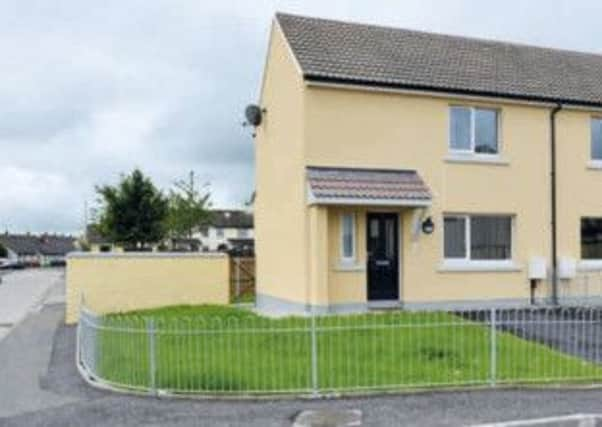Transfer of 55 social units is not a ‘viable template’ says auditor


That’s according to the Auditor General, Kieran Donnelly, who has questioned aspects of the transfer of the properties at Rinmore in Creggan, which took place following an approach to the Department of Social Development (DSD) in early 2009 by members of the local community and political representatives.
The lobbyists had asked if Apex housing association could buy the properties to complete “significantly delayed improvement works.”
Advertisement
Hide AdAdvertisement
Hide AdIn a new ‘Improving Social Housing through Stock Transfer’ report the Northern Ireland Audit Office (NIAO) points out that an economic appraisal of various transfer options for the Creggan pilot project didn’t consider the possibility of Apex transferring the homes and improving them to the cheaper ‘Decent Homes Standard,’ which is used in Great Britain.
Instead, Apex ultimately undertook to refurbish 38 of the homes to the higher Multi Element Improvement (MEI) standard and to build 17 new homes utilising a £1m Housing Association grant.
This meant Apex would have to provide funding of over £1m (£19k for each home) whereas if NIHE had retained the units and refurbished to the Decent Homes Standard it would have cost only £303,000 (£6k for each home).
“This reflects the considerably lower cost of maintaining homes to the Decent Homes Standard and the higher cost of MEIs,” the report states.
Advertisement
Hide AdAdvertisement
Hide Ad“The Department told us that the Decent Homes Standard was however ranked last under the non monetary analysis by some distance because it did not adequately address any of the stated objectives,” it adds.
Despite this Mr Donnelly believes the option should have been included and elsewhere he suggests that it should be factored in for future transfers in order to save public money.
“In our opinion, the economic appraisal could have included a housing transfer option with Apex undertaking less extensive refurbishments to the Decent Homes Standard.
“This option would have required Apex to access significantly less private funding over the thirty year period.
Advertisement
Hide AdAdvertisement
Hide Ad“The Department told us that they did not believe tenants were prepared to accept refurbishments of any lesser standard than other previously improved neighbouring properties and as the case to proceed was dependent on tenant support, there was no merit in offering a lesser standard,” the report explains.
Elsewhere, Mr Donnelly called into question aspects of the stock transfer appraisal.
He says it didn’t always follow best practice, for example, “there was no evidence that an evaluation panel, with all stakeholders represented, was established to assess and score the non monetary costs/benefits, despite this being a requirement under the guidance.”
The report also says the NIAO wrote to the Department in December 2012 “raising concerns about the Rinmore pilot, specifically with the transparency of the transfer value calculation; the very high standard and cost of improvements proposed and other aspects of the economic appraisal process.”
Advertisement
Hide AdAdvertisement
Hide AdFollowing the NIAO’s initial audit findings the Department has indicated that “lessons learned from the Rinmore pilot, including NIAO’s comments would be used to shape the proposed transfer of 2,000 properties from NIHE to Housing Associations via a competitive process.”
This includes several properties in Church Street in Limavady, which are listed for transfer later this year.